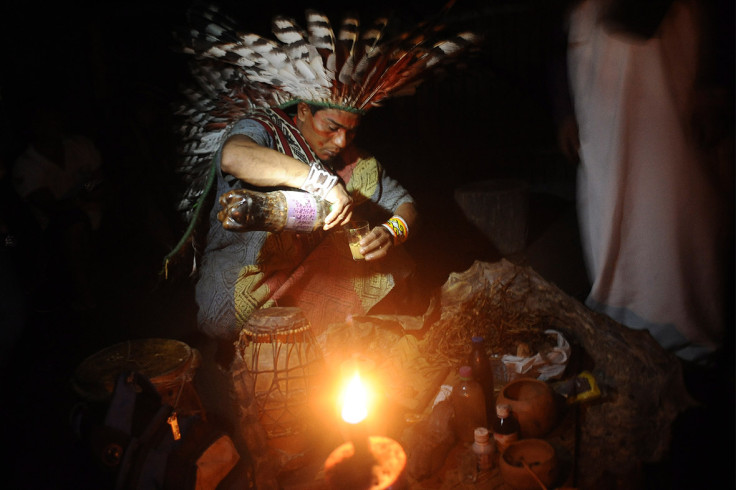Ayahuasca, a powerful Amazon psychedelic brew, could help treat eating disorders
Researchers rave about the potential of ayahuasca for treating a variety of mental health disorders.

Ayahuasca — a potent hallucinogenic brew used by Amazonian indigenous groups for centuries — has shown promise treating people suffering with eating disorders, according to the results of preliminary trials.
Eating disorders are among the most serious health conditions and are notoriously difficult to treat which has led to calls for the investigation of new therapies. An increasing body of research suggests that the shamanic brew, along with other psychedelics, could potentially be beneficial for the treatment of a variety of mental health ailments, such as depression, anxiety and addiction.
For the small-scale study, a team of researchers from Canada interviewed 16 people who had eating disorders and who had consumed ayahuasca in a ceremonial context. 10 of the participants had previously been diagnosed with anorexia, while the other 6 suffered from bulimia. Their results were published in the Journal of Psychoactive Drugs.
The ayahuasca brew is prepared using the Amazonian vine, typically with other admixture plants which contain the powerful hallucinogenic molecule dimethyltryptamine (DMT). It is used by indigenous groups for healing purposes and to contact the spirit world in traditional ceremonies which can last hours.
Participants usually drink a small amount of the foul-tasting brew after which they may experience hallucinations, altered states of consciousness, visions, intense emotions, and purging – which includes vomiting, diarrhoea, crying, yawning, sweating and shaking.
Eleven of the participants in the study said that ayahuasca had led to improvements in their eating disorder symptoms, while 14 said the experience helped them to better regulate their emotions.
One participant reported significant changes in their outlook after the ceremony: "There's no more eating disorder. Let's put it like that. There's no more eating disorder. There's no struggle around food. The struggle left."
Another, said that the experience signposted them to recovery: "I think as a whole, I just feel a lot stronger than I did before. I find that my thoughts are a lot lighter. I still have a lot of eating disorder thoughts, but I find there are moments where I have a lot less of them."
Participants also noted how the experience changed their perception of their physical bodies:"I really just experienced my body as a gift," one said. "I felt that it was malnourished. I could sense that, I could sense that I was not honouring the gift."
The team say that the ceremonial use of ayahuasca, under the right conditions and with the correct preparation and post-ceremony psychological support, shows promise as a potential alternative, or supplement, for those who do not respond to conventional treatments.
In many cases participants reported significant insights into their illness and recovery process leading to reductions in eating disorder symptoms and enduring positive effects lasting months or years.
"In most instances, participants even claimed that their ayahuasca experiences were more important for their healing process than any other kind of standard eating disorder treatment they had received", the researchers explained.
However, while ayahuasca is showing early promise in various experiments, the research is still in its infancy and it is important not to draw strong conclusions from this study alone.
For one, it is relatively small in scale and relies on participants reporting their experiences for its results rather than experiments conducted in a clinical setting. In addition, the use of ayahuasca may be inappropriate for some people based on their medical or psychological history.
In most countries where it is not traditionally consumed, ayahuasca is still illegal but the researchers hope that their findings will support the case for policy changes so that further clinical research can be conducted.
© Copyright IBTimes 2024. All rights reserved.






















